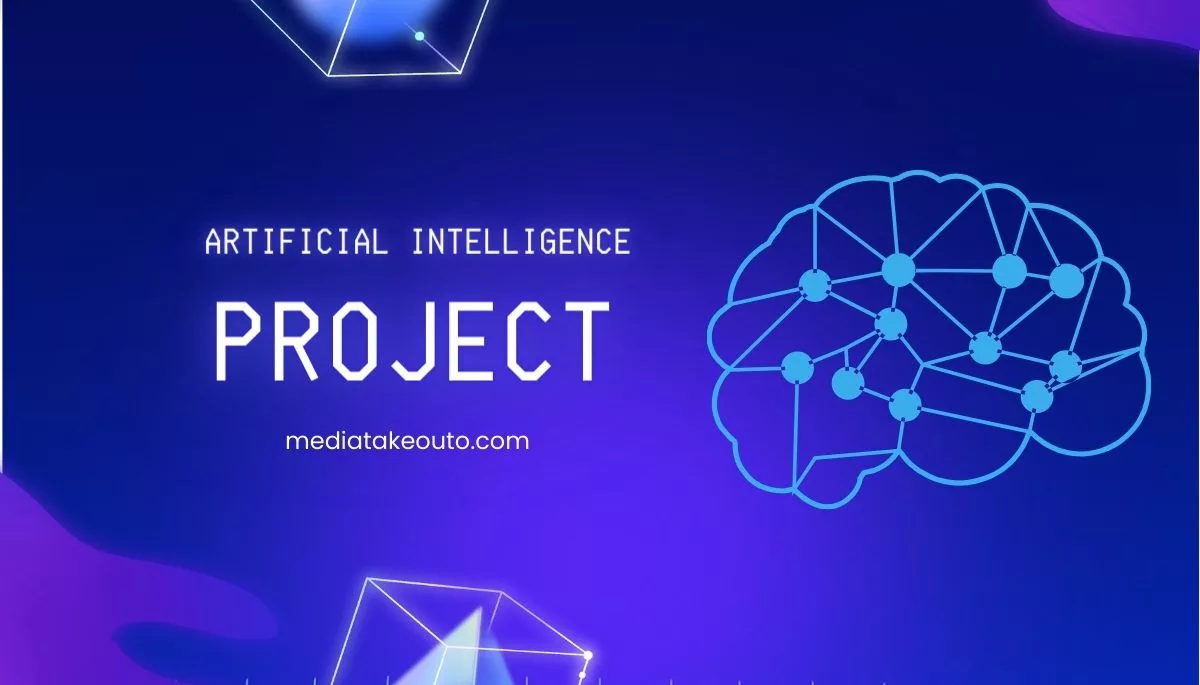Artificial intelligence is no longer a buzzword in the business world. It is actively used, and project management is no exception. How is artificial intelligence used in project management, and what are its key advantages and disadvantages?
This comprehensive article describes in detail the various applications of artificial intelligence in project management in 2023, the types of artificial intelligence used in the implementation of projects, and concrete examples of the practical application of AI capabilities because ai resource management has become an important aspect of the field of management of various projects.

Source: Unsplash
What is Project and Resource Management with AI capabilities?
AI-enabled project management is the active use of all available artificial intelligence (AI) capabilities in project, task, and role management tools. Artificial intelligence is widely used for:
- Significant improvement in the efficiency of project implementation;
- Increasing the accuracy of project execution;
- Proper organization of project management activities.
The capabilities of artificial intelligence are used in many sectors and industries. When it comes to development teams, the vast majority of teams say they actively use available AI tools. It can look like a tool for creating and managing tasks or using flexible methodologies that are necessary during the implementation of certain projects. Epicflow offers AI-based resource management solutions. The software solution from Epicflow is necessary for the field of project management and uses all available AI capabilities to ensure a reliable project and resource management process, using machine learning and predictive analytics on the way to successful project implementation.
How can artificial intelligence, its available capabilities, and functions help in managing various projects?
Artificial intelligence is a very new technology, and its available capabilities and use cases are changing almost daily. In 2023, there will be no AI-powered project management solution that can manage projects without significant human intervention. Most solutions in the field of AI in project management are aimed at improving human capabilities, not replacing them. Recent research shows that most software teams are considering the use of artificial intelligence for project management, including project development stages such as planning, forecasting, prioritization, and optimization.
Create, and implement tasks with the help of AI and simplify the flow of routine tasks
Artificial intelligence can change the way tasks are created and completed, the most boring (and least fun) aspect of project management. Most of the time spent on project management usually consists of the following key activities:
- Add tasks to your PM system and integrate them into larger projects;
- Work with detailed descriptions and requirements;
- Assign tasks to your team members;
- Determining the duration of a certain project;
- Control charts show how long a project takes from the beginning of development to the end (successful implementation).
Determine the complexity of project management tasks with available AI capabilities
Meet your intelligent assistant – artificial intelligence. AI can step in and provide several support mechanisms, including:
- Performance Guidelines;
- Aggregate, create, or reformulate data and job descriptions;
- Change the job description;
- Change of data;
- Estimated project completion date.
Artificial intelligence is the future and has significant advantages in the field of project management. AI’s ability to learn from historical data is also a game changer. Armed with valuable data, teams can leverage AI to make more accurate recommendations based on past actions. This is because AI can learn from previous actions and user data, making task creation a more efficient and accurate process. People cannot always do their best to reflect past performance perfectly and impartially. Recommendations based on artificial intelligence allow you to make more accurate and considered decisions.
Data consistency of artificial intelligence in the field of project management
We cannot always predict, implement, or complete a project. Therefore, learning from the patterns and mistakes of the past will help you move smoothly into a successful future. This is an area where artificial intelligence is particularly talented. Applying this to the field of project management, AI can predict many key things. AI-generated graphs based on the team’s previous work can make project proposals more realistic. The proposed results help teams better understand the complexity of the project tasks and better understand the available resources to successfully implement a certain phase of the project. Obstacles and potential project risks can prevent your team from reaching the level they were before. Resource requirements: With the right data, AI can help determine the number of people, skills, and time required to complete projects within a given time frame.
The key advantages of actively using the available capabilities of artificial intelligence in the field of managing various projects
Artificial intelligence aims to augment human capabilities, not replace them. For developers using AI tools and capabilities today, the biggest benefits of using AI are reducing red tape and increasing operational accuracy: AI analyzes large volumes of data and historical information to provide project managers with insights into project implementation based on the analyzed data. This allows for more informed and less biased decisions, which contributes to better project planning and implementation. Effective resource allocation involves AI algorithms being able to optimize resource allocation based on project delivery requirements, team capabilities, and available timelines. This helps to maximize the use of available resources, reduce unnecessary time costs, and ultimately increase the efficiency of project implementation.
Identify and mitigate risks: AI can analyze historical project data and key external factors to identify potential risks early in the project lifecycle. This allows project managers to proactively implement risk mitigation strategies and avoid costly delays and disruptions. Automated task management: AI can automate repetitive and time-consuming tasks such as data entry, word processing, and planning. This streamlines project flow and frees up valuable time for the project team to focus on higher-value tasks. Continuous improvement: AI can learn from project data and results, enabling continuous improvement in project management processes. This will help you identify best practices, learn from mistakes, and improve your project execution strategy over time. AI-powered predictive analytics predict project performance and potential failures, allowing project managers to take proactive steps to keep projects on track.
Artificial intelligence project management: summary
There is no doubt that artificial intelligence is a breakthrough in the field of project management. AI capabilities enable fine-tuning of the decision-making process, more efficient allocation of resources, and added information to reduce the risk of the project management process. There are some drawbacks to consider, such as bias, security risks, and adoption issues. You can use the Epicflow solution that allows you to ensure business success with the help of artificial intelligence features that are added to this software solution. This solution also includes predictive analytics, which provides opportunities for comprehensive analysis of project execution, the ability to analyze the effectiveness of project execution, change control, and determination of all necessary priorities (stages of project execution: from the most important to the least important). When using all available AI capabilities and features in project management, it is important to avoid potential pitfalls and always double-check and do your due diligence.

